Unlocking Your Brain's Potential: 4 Natural Ways to Boost Brain Health
Unlock your brain's potential and boost cognitive function the natural way. From brain exercises to foods, learn 4 easy ways to improve your brain...
Discover the benefits of anti-aging brain training tools on our blog. Learn how neurofeedback can help optimize brain function as you age.
People are terrified of losing their memories and cognitive functioning as they age. They want to keep their minds sharp as they head into their 70s, 80s, and 90s. Some are driven by necessity: they need to work past the age of retirement and worry about the thought of not being mentally fit for employment. Others are motivated by a desire to keep their minds as young as possible and not burden loved ones as they age. Whatever the reason for wanting to stay mentally fit, now is a great time to explore the best brain training tools for anti-aging.
Brain training is a new and expanding field. Research is developing quickly, and every week we have more information on what works and what doesn't.
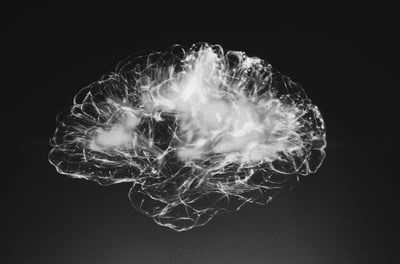 What Is Brain Training for anti-aging?
What Is Brain Training for anti-aging?When fearful, people focus on worst case scenarios. This is true when people think about getting old. What if I can't remember who people are? What if I keep saying the same things over and over and don't realize it? My friends and family won't want to spend time with me. The strategy is then to focus on not losing our short-term memory or other mental functions. What games will help me keep my memory or my ability to concentrate? This approach is not the most effective. The best way to approach brain training for anti-aging is to ask: what are the tools that improve overall brain performance?
Brain training is not just about what helps your memory, focus or general cognitive abilities. The brain regulates these aspects of wellness, but it also regulates key functions, such as sleep and emotions. The best brain training tools address all key areas of wellbeing. Preventing cognitive decline is only one aspect of aging well, and a holistic anti-aging regime takes into account everything we need to enjoy and engage in life as we get older.
An improved definition of brain training is any activity that facilitates enhanced brain performance. This includes performance in areas under conscious control, such as concentration and problem solving agility, as well as unconscious functions, such as stress response and sleep quality.
With today's advancements in understanding the brain and its functioning we know brain training can make a bigger impact than we ever imagined. Neuroscience research now confirms that the brain is plastic. Neuroplasticity is the term we use to describe the brain's ability to generate new brain cells and new connections between brain areas throughout life.
We are only recently discovering the brain's ability to change and improve functioning throughout the lifespan. It is only within the last 30 years that researchers established that the brain is not a fixed system, but rather a dynamic and restorative system. Research demonstrates that our brains retain neuroplasticity through adulthood--meaning we have the capacity for life-long growth, improvement and even repair.
.jpg?width=400&name=richard-gatley-533872-unsplash%20(1).jpg) In the early 1990s, the neuropsychological understanding of the brain was that it was a fixed system. In that view, a broken or injured brain could not be fixed. For example, if a person suffered a stroke and had damage to the brain's language center, that damage was considered permanent. But current research says that model is inaccurate. They essentially discovered the world is round, after believing it was flat! We now know the brain is not static, it is dynamic and can change to improve its functioning.
In the early 1990s, the neuropsychological understanding of the brain was that it was a fixed system. In that view, a broken or injured brain could not be fixed. For example, if a person suffered a stroke and had damage to the brain's language center, that damage was considered permanent. But current research says that model is inaccurate. They essentially discovered the world is round, after believing it was flat! We now know the brain is not static, it is dynamic and can change to improve its functioning.
This new information allows us to unlock the potential for healing and growth. Research shows the brain is able to re-wire itself to improve its functioning and even re-locate functioning to a new area when one region becomes permanently-damaged. Not only can the brain learn new things, but learning can alter the brain's physical structure and make it stronger and healthier.
Before exploring the best brain training tools for anti-aging, let's first look at the potential benefits.
Anti-aging benefits from brain training include three main areas:
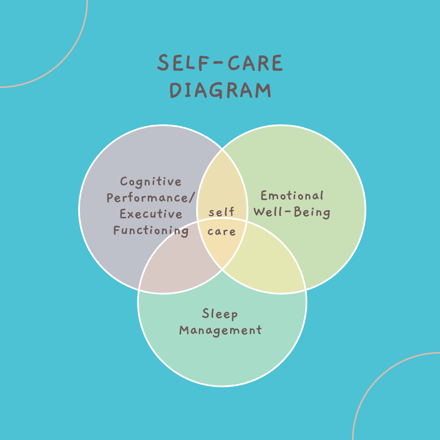 Cognitive Performance / Executive Functioning. Brain training has been shown to benefit your working memory, ability to focus, and word recall. It also improves your overall mental energy and clarity.
Cognitive Performance / Executive Functioning. Brain training has been shown to benefit your working memory, ability to focus, and word recall. It also improves your overall mental energy and clarity.
Emotional Well-Being. Some people start to worry more as they age. Others simply want to feel a greater sense of joy and move into their retirement years with a sense of peace and calm. Brain training helps calm down racing thoughts and allows us to focus on the current moment.
Sleep Management. It is widely accepted that the the right amount of high-quality sleep supports emotional regulation and cognitive function. Good sleep is also correlated with fewer illness as we age. Engaging in brain training activities promotes healthy sleep, and subsequently boosts overall health.
Now that we've discussed what benefits brain training provides, let's discuss what types of brain trainings are available for anti-aging. Choosing the right brain training program depends on your goals. The best brain training may be an app or device, but it might also be something less concrete, like learning a new behavior or re-training how you talk to yourself. Some of the interventions are still too new to show conclusive benefits, but here are some of the most accessible brain training techniques and apps, and how they have been evaluated up to now.
/exercise-is-good-for-your-brain-tomasz-wozniak-484204-unsplash.jpg?width=400&name=exercise-is-good-for-your-brain-tomasz-wozniak-484204-unsplash.jpg) Exercise
ExerciseExercise is a great brain training practice for anti-aging. It increases oxygen flow to the brain and stimulates brain function. Interval training is shown to improve cognitive functioning and is a proven support for improving your mood and sleep. A new study shows that aerobic exercise can also improve executive functioning.
Exercise has been shown to help regulate mood and is proven to lower stress levels. When stress levels are elevated, we tend to have more worrying thoughts, feel more pressure, and have greater feelings of hopelessness. Numerous studies have also shown that regular physical activity is associated with people getting more and better quality sleep.
This one may surprise you. Research shows that doing activities that are novel and work on practicing gross motor skill building-- such as juggling lessons or learning how to play horseshoes--can have a significant impact on cognitive functioning. In a recent study at the University of Montreal, they separated elderly adults into three groups: two exercise groups and one "motor skills" group, which did only light and novel activities, such as stretching, breathing exercises, walking through obstacle courses, juggling lessons and throwing balls at targets.
The researchers meant for the motor skills group to be the "control" group (ie not improve during the research period); only the two exercise groups were meant to have potential improvements in cognitive functioning. Surprisingly, they found the "control" group had as much improvement as the actively exercising groups.
Other studies have found that training programs that involve co-ordination--such as balance training, hula hoops, and obstacle courses--have as big of an effect on the brain as more conventional exercise. Researchers assume it has to do with the level of cognitive engagement and novelty of the task, both of which fosters new connections between neurons.
If you engage in activities that work on motor skills but are also fun and playful, they will also have a positive impact on mood and will help relieve stress. Anything that lowers our stress is an anti-aging activity!
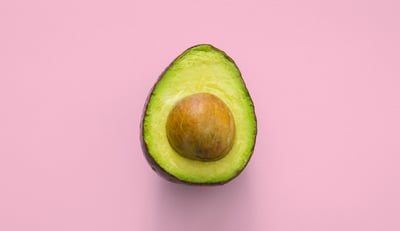 Anti-aging Foods
Anti-aging FoodsWhat are the best anti-aging foods? Diet has well-researched effects on brain functioning and anti-aging properties. The food we eat impacts mental and emotional fitness. When we balance our diet correctly, it has a positive impact on overall anti-aging goals.
Foods high in antioxidants and omega-3 fatty acids have been found to slow down skin aging. These foods are also ones that are important for overall brain functioning and are the building blocks for repairing the brain.
Many studies have shown that diets high in sugar correlate with poorer brain functioning. One reason is because sugar interferes with the gut's ability to produce the neurotransmitter serotonin. Serotonin is used by the brain to improve mood.
Other studies show that foods that create inflammation are bad for brain functioning. Foods that cause a lot of inflammation in the body are processed meats (such as hot dogs), sugary drinks, white breads and sweets.
When there is too much inflammation, it can negatively impact brain functioning. It's often described as "brain fog"-- when the person feels like they can't focus properly, remember tasks or have energy for prolonged problem solving and concentration.
On the other side, foods that are high in nutrients that the brain uses to build neurons and neurotransmitters can have positive effects. What you eat is an important aspect of maintaining brain health.
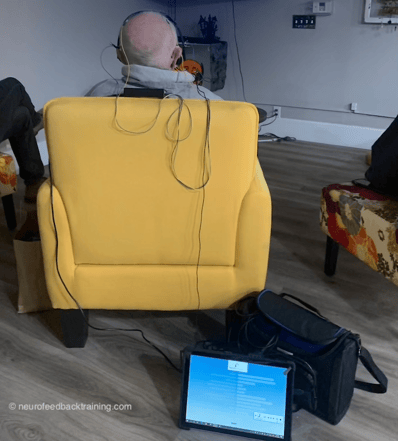 Neurofeedback devices are at the forefront of brain training technology. They work by using precisely timed feedback to help identify and reset negative habits. These brain habits can be associated with aging, such as lacking mental focus and concentration, feeling overwhelmed, poor sleep, and worrying.
Neurofeedback devices are at the forefront of brain training technology. They work by using precisely timed feedback to help identify and reset negative habits. These brain habits can be associated with aging, such as lacking mental focus and concentration, feeling overwhelmed, poor sleep, and worrying.
Brain training with neurofeedback can be a great addition to an anti-aging regime, because the focus is on optimizing overall mental and emotional performance.
Neuroscience has come to understand that our mental and emotional habits are, in part, the result of the brain's electrical activity being stuck in habitual cycles. What this means is that when a person forms a hard-to-break habit, such as struggling to concentrate on tasks, this is reflected in the individual's brainwave activity.
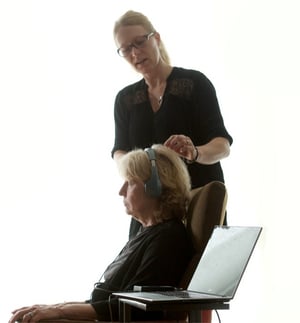 Neurofeedback software tracks brain wave activity collected through EEG sensors attached to the head. When the software picks up on changes in brain patterns, through a feedback system that is either auditory or visual, it alerts the brain to pay attention to its habits. This microsecond by microsecond feedback allows the brain to register and reset the maladaptive patterns.
Neurofeedback software tracks brain wave activity collected through EEG sensors attached to the head. When the software picks up on changes in brain patterns, through a feedback system that is either auditory or visual, it alerts the brain to pay attention to its habits. This microsecond by microsecond feedback allows the brain to register and reset the maladaptive patterns.
There are a lot of devices that call themselves neurofeedback. It is important to stay up-to-date on the best neurofeedback equipment. Neurofeedback has a range of benefits, including improving cognitive function, focus, memory, emotional regulation, and sleep management.
What Does a Neurofeedback Session Look Like?
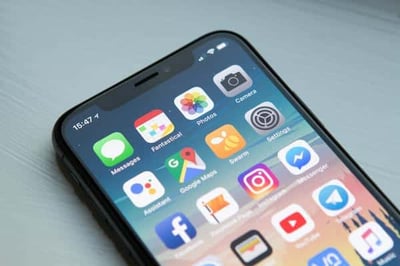 Though they do not affect emotional habits, brain training apps can help with the cognitive fitness aspect of anti-aging. These apps can be found in the app store on your smart phone or on specific websites. They work similarly, offering mini-games that are designed to improve performance of various cognitive skills, such as memory and mental agility. Scores are stored, and the user can track their improvement over time.
Though they do not affect emotional habits, brain training apps can help with the cognitive fitness aspect of anti-aging. These apps can be found in the app store on your smart phone or on specific websites. They work similarly, offering mini-games that are designed to improve performance of various cognitive skills, such as memory and mental agility. Scores are stored, and the user can track their improvement over time.
One study showed that a brain training app used by elderly participants slowed their cognitive decline. Some of the most popular apps are Peak, Elevate and Luminosity. The most popular website is Luminosity. The second most popular, Elevate, has more specific goals: to improve the user's writing, concentration and productivity.
The downside to using brain training apps for mental fitness is that they lack the social element. Consider playing memory games with others to also receive the emotional benefits of social connection. It's been shown that people who play board games regularly, including games like bridge, have less cognitive decline and lower depression levels.
/yoga--group-shot-young-and-old-meditating.jpg?width=400&name=yoga--group-shot-young-and-old-meditating.jpg)
It is well established that stress ages us. Engaging in a regular meditation practice is proven to reduce stress and increase focus. There are many meditation benefits that are anti-aging-- for example, creating calm, lowering blood pressure, and creating greater mental focus and concentration. Meditations geared towards cultivating compassion and loving-kindness can also increase emotional wellbeing.
Given the popularity of meditation, it is easy to find guided meditations that for any need or goal. Body-scan meditation practices are helpful for reducing stress. It is also proven that people need less pain medication when they practice Mindfulness Based Stress Reduction (MBSR) for managing pain.
The best brain training strategy for anti-aging is not a single tool, but a combination of the ones listed above. Pick one to start and add new ones once you have habits established. Remember that it takes 21 days to a month to create a new habit! The more consistent you are, the better the results will be. Once you have a routine, you can add more tools to your brain training.
The most important rule to follow: never give up on yourself. Every day is a new opportunity to start fresh.
Natalie Baker has over 25 years of experience as a licensed psychotherapist and has been a NeurOptimal® neurofeedback trainer since 2011. She is the founder of Neurofeedback Training Co., which offers in-person sessions and runs the largest nationwide home rental program for NeurOptimal systems. Natalie also teaches meditation and Buddhist psychology and specializes in working with anxiety, stress, ADHD, and trauma.
Unlock your brain's potential and boost cognitive function the natural way. From brain exercises to foods, learn 4 easy ways to improve your brain...
Learn about the best practices to train the brain in New York City that boost cognitive and emotional fitness, reduce stress, and promote healthy...
Discover the science behind brain training and unlock the potential of your mind from the comfort of your own home with affordable brain training...
Be the first to know about new blogs